What does chuunibyou mean in Japanese?
Literally, chuunibyou 中二病 translates to "middle school second-year syndrome," as in a disease someone around 13–14 years old would get. It's also romanized chūnibyō.
Sometimes, an anime character is said to have chuunibyou, to be a chuuni 厨ニ, but what is chuunibyou? Is it even a real disease?
Not really. The term chuunibyou 中二病 refers to thinking, acting, or talking like you live in a fantasy game, or in the world of a manga, with magic, secret organizations, super powers, and so on. Something which is extremely embarrassing and cringe for anyone older than 13 years old, and that you'll absolutely regret doing in front of others later in your life.
Anime: Chuunibyou demo Koi ga Shitai! 中二病でも恋がしたい! (Episode 1)
The Meaning of Chuunbyou in Japanese
The word chuuni 中二 is an abbreviation of a school year:
- chuugaku ninen
中学二年
Middle school second year. (Japan.)
Eight grade. (U.S.)- 13–14 years old.
And byou 病 means "sickness," or "syndrome." Together, they form chuunibyou 中二病, translating to "middle school second-year syndrome," or "eight grade syndrome."
Syndrome Symptoms
The term chuunibyou doesn't refer to an actual sickness acknowledged by medical experts. Instead, it's a slang that refers to a certain type of person that tries really hard to be different from others, ending looking weird or pretentious.
Basically, people, in general, are very boring, and if you're a kid in middle school that doesn't know that, you'll end up feeling like you're less special than others, even though you're pretty much like everybody else.
Consequently, you'll do things to boost your ego, to make yourself appear more special than you really are, and more special than your peers, because you're having an identity crisis through puberty, and not being special doesn't make sense for you.
To have a better idea, this includes things like:
- Listening to foreign bands.
- Listening to obscure bands because they aren't popular.
- Claiming you've been listening to a band before it was popular.
- Listening to obscure bands because they aren't popular.
- Being an underachiever, but claiming "I can do it if I really tried."
- I have yet to use 100% of my power.
- Drinking bitter coffee.
- Because, in Japan, it's thought that only adults like bitter coffee, and you want to appear to be more mature than you actually are.
In other words, anything from acting like a delinquent to being involved in subculture for the sake of appearing different is considered chuunibyou.
In anime, chuunibyou characters often have "delusions," mousou 妄想, that they're a fantasy character, because fantasy characters are all special and unique, with cool, distinct abilities and names, so if you want to be special, you want to be a fantasy character.
It's pretty normal for kids to play around having imaginary fights where someone pretends to be the hero, someone else pretend to be the bad guy, and then they just imagine themselves casting magic, swing swords, and so on.
The kind of stuff they've seen in games, anime, and shounen manga, like ninjutsu. But do note that chuunibyou characters aren't necessarily otaku オタク, they just have been influenced by manga.
The problem is: this isn't LARP or D&D. It's embarrassing to act like this in public. The older you are, the more embarrassing it is, so most kids normally stop doing this stuff by the time they reach high-school.
If you do something embarrassing in your first year of high school, everyone is going to see it, and remember it through all three years of high school, so this would be a pretty good time to stop doing embarrassing things.
If you don't stop here, everybody will know you have chuunibyou, middle school syndrome.
Examples of Chuunibyou
Examples of things chuunibyou characters do include:
- Pretending that you can cast magic.
- Pretending you've been cursed by something.
- Using sticks, umbrellas, or other long, narrow objects as if they were swords.
- Pretending that there's an evil, global, organization, called "The Organization," conspiring into things everywhere.
- Pretending that you're part of a good, global, cool-named organization fighting the evil organization.
- Covering your arms in bandages, even though you haven't broke a single bone.
- Claiming those bandages are a seal, which contains your true power, which may be an evil power, or a demon arm, or something like that.
- Using an eye-patch, even though your eye is perfectly fine.
- Claiming that eye-patch is a seal, which contains your magic eye.
- Using colored contacts to change the color of your eye, because it's a magic eye.
- Claiming that eye-patch is a seal, which contains your magic eye.
- Claiming to be a reincarnation.
- Claiming someone else was a friend you fought together with, or a foe you fought against, in a previous life.
- Having a pretentious naming sense.
- Using foreign words, katakana words, English words, and so on to name your imaginary skills.
- Using complicated kanji instead of normal, everyday kanji, which appears pompous.
- Using gikun 義訓 so you can do both things at the same time.
Wearing Bandages to Seal Your True Power
Bandages are often used by chuunibyou characters to seal within their arms some evil, demonic power, that must never be let out.
- houtai
包帯
Bandages. - fuuin
封印
Seal.
Sometimes, the character's true, real power is just too strong for him to control, so the seal is there to protect those around him from himself.
Anime: Saiki Kusuo no Psi-Nan, 斉木楠雄のΨ難 (Episode 1)
- Context: within the right arm of Jet Black Wings dwells the Black Beat that he stole from the Dark Reunion.
For reference, an actual power within arm being unsealed by undoing bandages:
Anime: Yū☆Yū☆Hakusho 幽☆遊☆白書 (Episode 58)
- Context: Hiei unsealing the Dragon of the Darkness Flame, or Jaou Ensatsu Kokuryuu-ha 邪王炎殺黒龍波, literally "Evil-king, kill-by-burning, black-dragon-wave."
Wearing an Eye Patch to Seal Your True Power
Similar to bandages, chuunibyou characters also wear "eye patches," gantai 眼帯, to seal some sort of power within their eyes.
Bottom: Cerberus ケルベロス
Anime: Boku no Tonari ni Ankoku Hakaishin ga Imasu. ぼくのとなりに暗黒破壊神がいます。 (Episode 1)
- Context: when Sturmhut removes his eye patch, the "Dark God of Destruction, Miguel Offenbarung Dunkelheit Wahnsinn Äußerst Gefallener Engel Abgrund Nachfolger," Ankoku Hakaishin Migeru Offenbārungu Dhunkeruhaito Vānzuin Oisāsuto Gefarenāengeru Appugurunto Nāhaforugā 暗黒破壊神ミゲル・オッフェンバールング・ドゥンケルハイト・ヴァーンズイン・オイサースト・ゲファレナーエンゲル・アップグルント・ナーハフォルガー, awakens.
- The name is spelled 暗黒破壊神ミゲル・黙示録・闇・狂気・究極・堕天使・奈落・後継者, with everything after Miguel as gikun 義訓. The meanings are:
- mokushiroku
黙示録
Apocalypse. (Offenbarung) - yami
闇
Darkness. (Dunkelheit) - kyouki
狂気
Insanity. (Wahnsinn) - kyuukyoku
究極
Ultimate. (Äußerst) - datenshi
堕天使
Fallen angel. (Gefallener Engel) - naraku
奈落
Abyss. (Abgrund) - koukeisha
後継者
Successor. (Nachfolger)
Having a Magic Eye That Holds Your True Power
A "magic eye," magan 魔眼, or "evil eye," jagan 邪眼, or jakigan 邪気眼, is an often weirdly colored eye that has some sort of magic power, or is cursed, or something like that.
A character that wears an eye patch probably has one of these.
With chuunibyou characters, since they never remove the eye patch, it gets hard to confirm whether they're just lying and have normal eyes, or that they do, in fact, have special eyes with special colors bearing special powers.
Anime: Chuunibyou demo Koi ga Shitai! 中二病でも恋がしたい! (Episode 1)
- Context: Rikka doesn't have heterochromia, she simply wears colored contacts.
For reference, an actual magic eye:
Anime: Black Butler, Kuroshitsuji 黒執事 (Episode 20)
- Context: the pentagram on Ciel's left eye is proof of his contract with a demon.
Exceptionally:
Anime: Kumo Desu ga, Nani ka? 蜘蛛ですが、なにか? (Episode 7)
- Context: Kumoko goes full chuunibyou when she learns that she can get a magic eye.
Doing Cool-Looking Poses
Being the edgy anti-heroes that they are, chuunibyou characters couldn't be chuunibyou characters without all the over the top posing, gesugao ゲス顔, and pretensions of being an evil mastermind.
Covering your face as you talk is a particularly popular way of appearing cooler than you really are.
Anime: Kono Subarashii Sekai ni Shukufuku wo! この素晴らしい世界に祝福を! (Episode 2)
- waga na wa Megumin!
我が名はめぐみん!
My name is Megumin!- waga
我が
First person possessive pronoun, specially used by grandiose characters, and characters with delusions of grandiosity.
- waga
The Evil Organization
The "Organization," soshiki 組織, also known as "They," yatsura 奴ら, is an evil organization planning world domination from the shadows behind the curtains, whose conspirations happen to involve high school students for some nefarious reason.
- In Saiki Kusuo no Psi-Nan, the Organization is also known as Dark Reunion, who targets its former member, Jet Black Wings, in an attempt to steal the Black Beat sealed in his right arm in order to create a new world.
Naturally, the Organization operates at global level, if not at interplanetary level, multi-dimensional level, or time-travelling level. They're powerful enough that neither the police, the army, the galactic federation, nor Doctor Who can stop them.
For the record, we aren't talking about SCP here.
The only entity capable of fighting against the Organization is an institution which the chuunibyou character is affiliated with. It's up to the chuuni, as an ally of justice, to be wary of the organization's movements and report back to central command whenever possible.
Right: Makise Kurisu 牧瀬紅莉栖
Anime: Steins;Gate (Episode 1, Stitch)
- Context: Kyouma, on a cellphone turned off, reporting that he's been caught by an agent of the Organization.
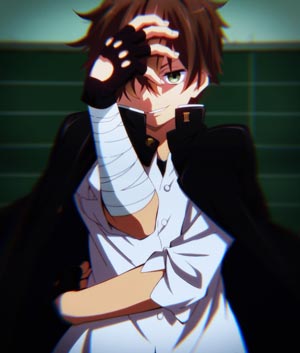
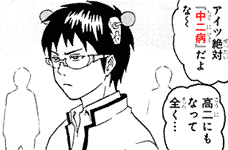
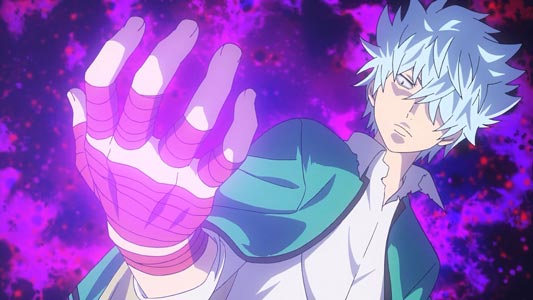
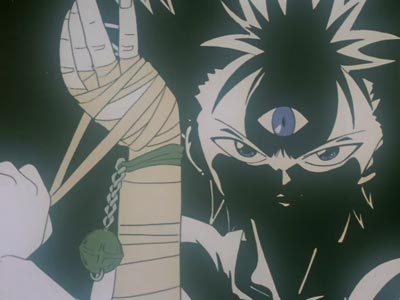
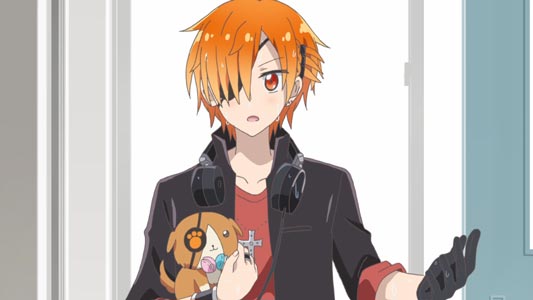
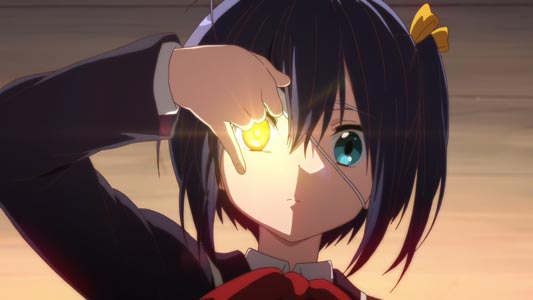
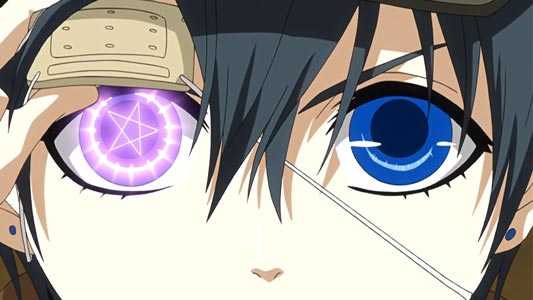
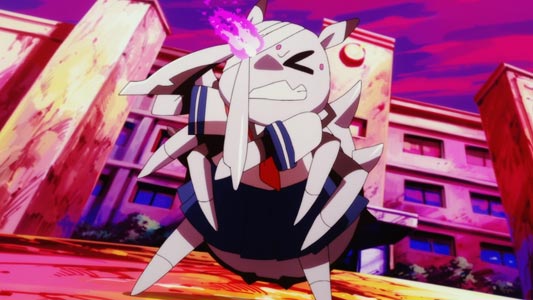
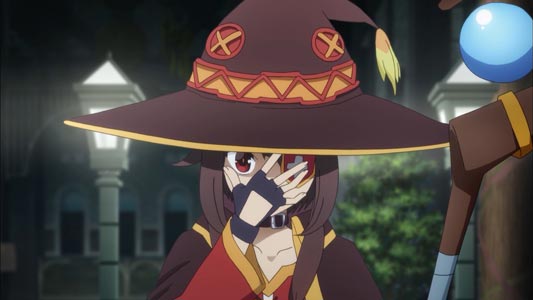
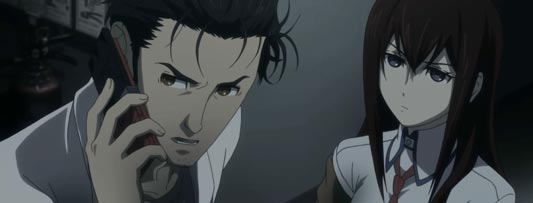
Thanks so much for all your hard work on this blog! It has quickly become one of my favorite internet go to haunts for my Japanese learning! You do a really great job of making everything clear and easy to understand all while being funny and relatable. Thanks so much and keep up the good work!
ReplyDeleteBtw, I just wanted to say that your English is very good too, your site pretty much reads like it came from a rather well read native speaking internet denizen.